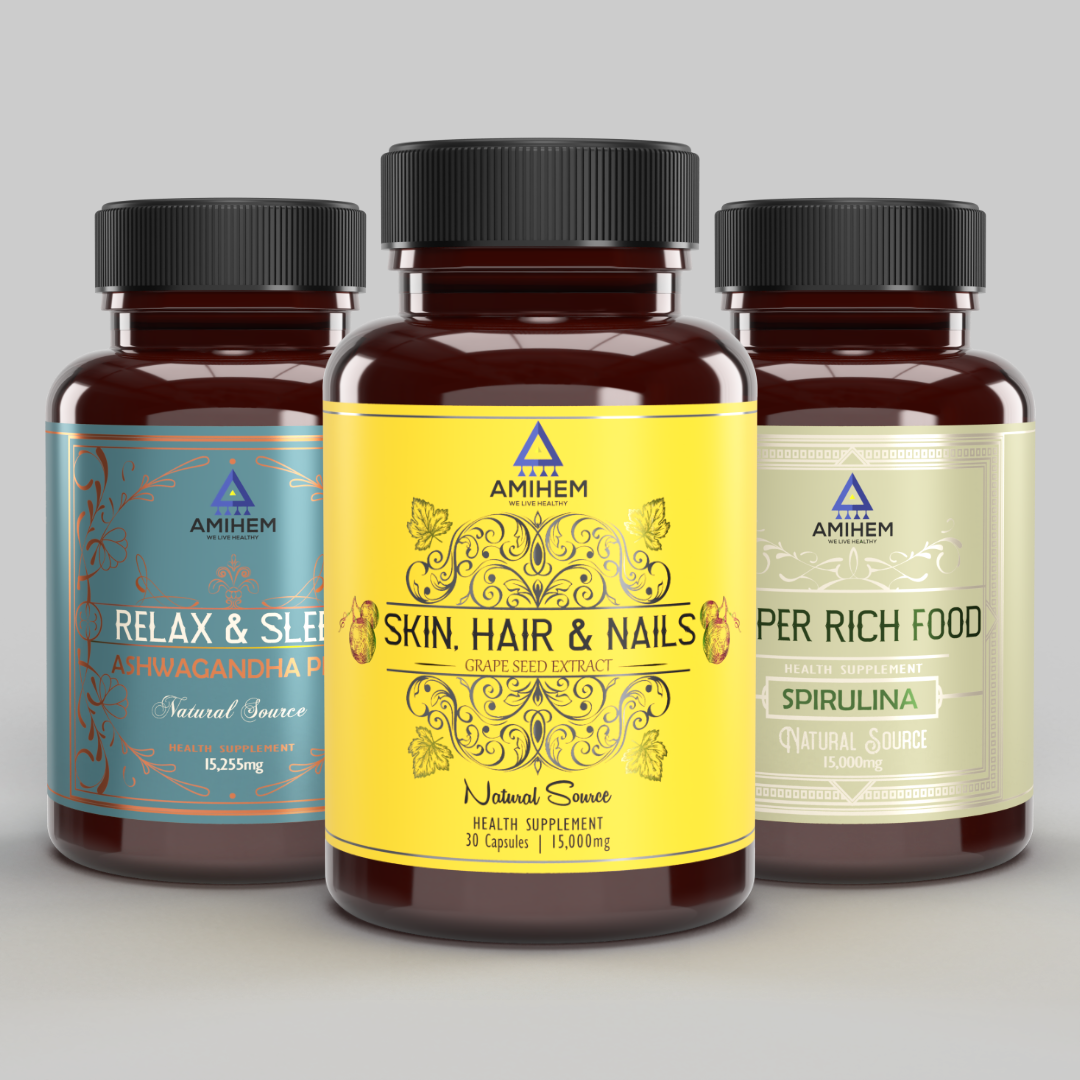In today’s world, the wellness industry has seen a massive surge in the popularity of lifestyle supplements. Products like ashwagandha, spirulina, and grapeseed are being marketed as keys to enhancing overall well-being, boosting energy, improving immunity, and supporting longevity. But how do these supplements compare to over-the-counter (OTC) medicines, and more importantly—if they are indeed "supplements," are they food? Do we need a health issue to take them, like we do with medicines?
Lifestyle Supplements vs. OTC Medicines
- Purpose and Usage
- OTC Medicines: These are specifically formulated to treat or alleviate symptoms of a particular health condition. Whether it’s pain relief, treating a cold, or managing chronic conditions like hypertension, OTC medicines are often a short-term solution aimed at addressing an acute problem.
- Lifestyle Supplements: These are more focused on enhancing overall well-being. Unlike medicines, supplements are typically designed to fill nutritional gaps, support healthy body functions, and improve long-term health. They aren’t intended to treat diseases or replace conventional medical treatments but rather to maintain or optimize health.
2. Regulation
- OTC Medicines: OTC medicines must undergo rigorous clinical testing and regulatory approval processes. These products need to demonstrate safety and efficacy before they’re approved for use.
- Lifestyle Supplements: While supplements are generally considered safe, they don’t go through the same approval processes as medicines. Instead of clinical trials, they’re regulated based on claims related to their health benefits. However, it’s always wise to consult with healthcare professionals before use, especially if you have underlying conditions.
3. Dependency and Duration
- OTC Medicines: Usually, OTC medicines are used only when symptoms arise, and their use is generally short-term.
- Lifestyle Supplements: These are designed for daily consumption over a long period to promote better health. They support your body’s natural functions and are part of a holistic approach to wellness.
Are Lifestyle Supplements Actually Food?
This brings us to a key question: If lifestyle supplements are designed to fill nutritional gaps, are they technically food? The line between food and supplements can sometimes be blurry. In fact, many lifestyle supplements are derived from natural food sources (like spirulina or grapeseed), and their nutrient content is intended to enhance the diet. They’re food, in the sense that they contribute essential vitamins, minerals, and compounds that support health.
However, unlike traditional foods, supplements are more concentrated and are intended to provide specific benefits rather than just sustenance. While they might not replace a well-balanced diet, they can certainly complement it.
Think of it this way: lifestyle supplements are like the vitamins and minerals your body needs, but at a higher concentration than what you typically get from a meal. The goal is to ensure that you’re getting enough of what your body needs to thrive—especially if your diet falls short in certain areas.
Do You Need a Health Issue to Take Supplements?
Unlike OTC medicines, which are usually used to address specific health issues, lifestyle supplements don’t require you to have a health issue to be effective. They can be used proactively to maintain health, support well-being, and even prevent potential health problems in the future.
Supplements can boost immunity, improve mental clarity, enhance energy, and reduce inflammation—all key components in maintaining overall wellness. By taking supplements regularly, you’re not only addressing gaps in your nutrition but also building a foundation for better health in the long run.
The Key Takeaway: Prevention Is the New Cure
Lifestyle supplements aren’t meant to replace traditional medicine but to support your health journey. They are not just an addition to your routine but an investment in your long-term well-being. So, while you don’t need to have a health issue to incorporate them into your life, they can certainly help you avoid problems down the road.
In the end, lifestyle supplements are indeed a form of “food” designed to nourish and sustain you. They’re a proactive way to support your body’s needs and optimize its performance.
#Wellness #Supplements #HealthJourney #PreventionOverCure #FoodForHealth #Lifestyle #india #bestsupplementsinindia


